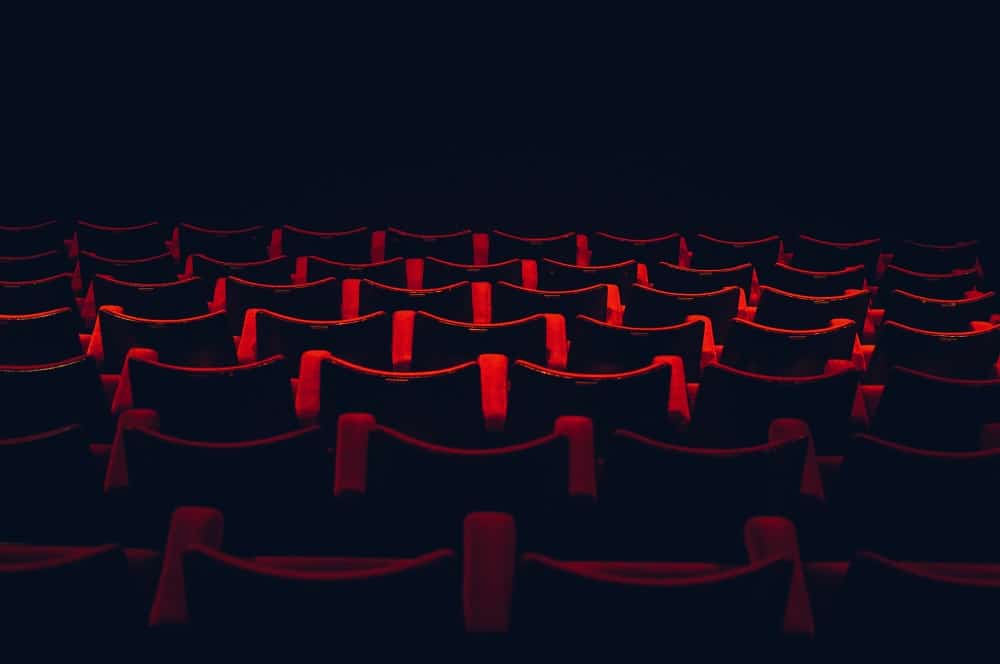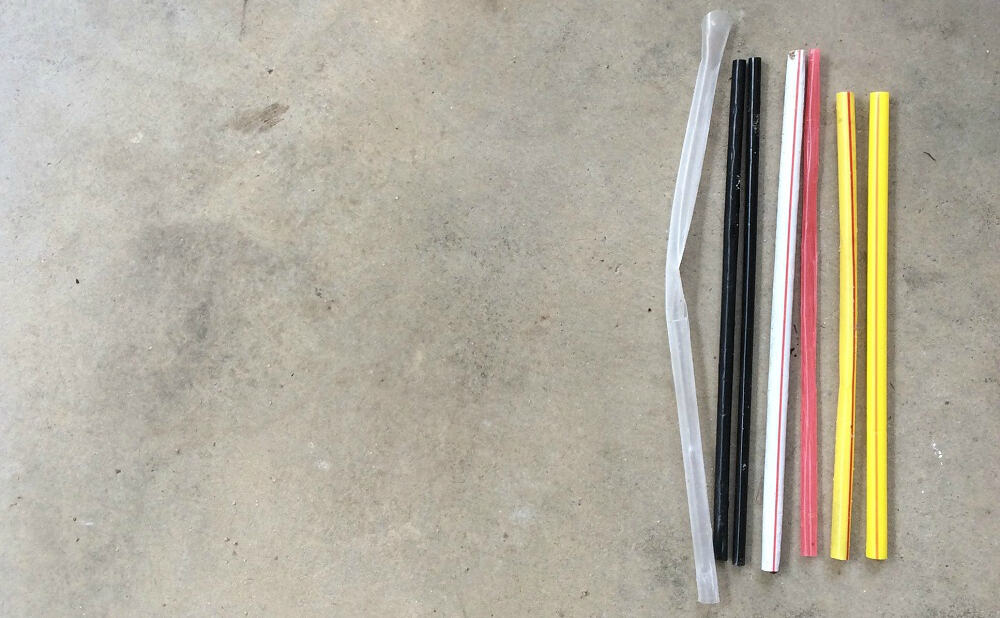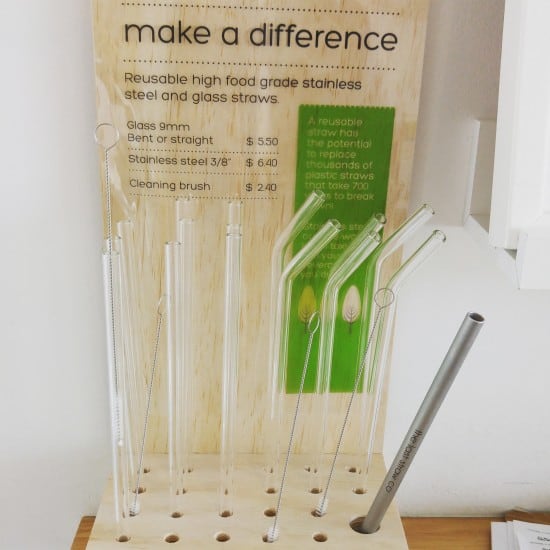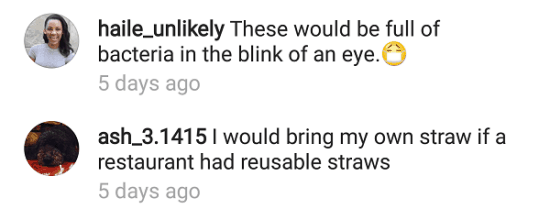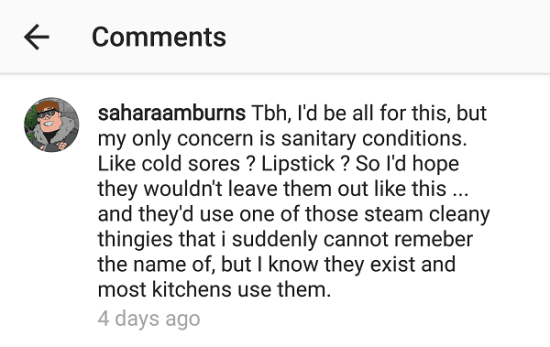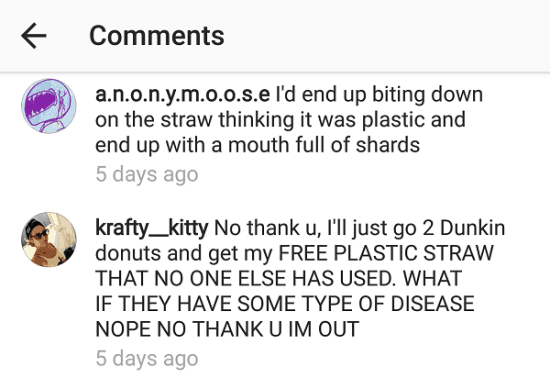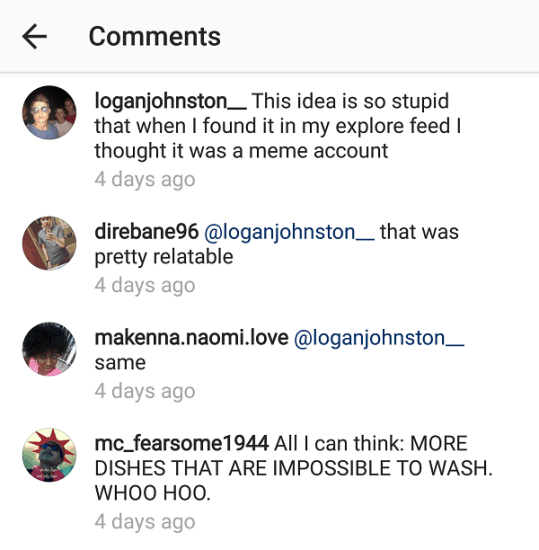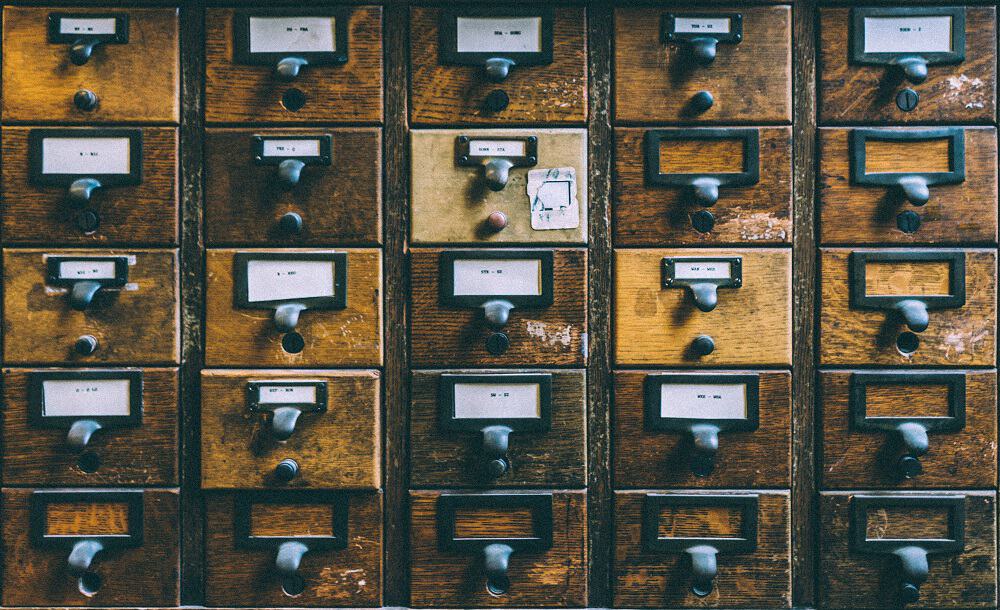My Top Ten Documentaries To Get You Thinking (and Questioning)
Recently a reader asked if I could write a blog post about my top environmental documentaries. How could I possibly refuse?! There are so many great documentaries out there, and watching them is a great way to understand the issues, learn more, and feel re-inspired to take action. Not to mention coerce friends and family into learning a little more (and maybe help them understand why we do what we do). Invite them over with the lure of (plastic-free) popcorn and hope that the message will give them something to think about ;)
Here it is: my top 10 eco documentaries. Actually, I’ve listed 12 (well, if you count the side recommendations, 14). I could give you a list of ten documentaries about plastic, but I wanted to cover some of the other topics I’m interested in, so there is a mix. I’ve listed them roughly in my order of preference.
So, drumroll please…
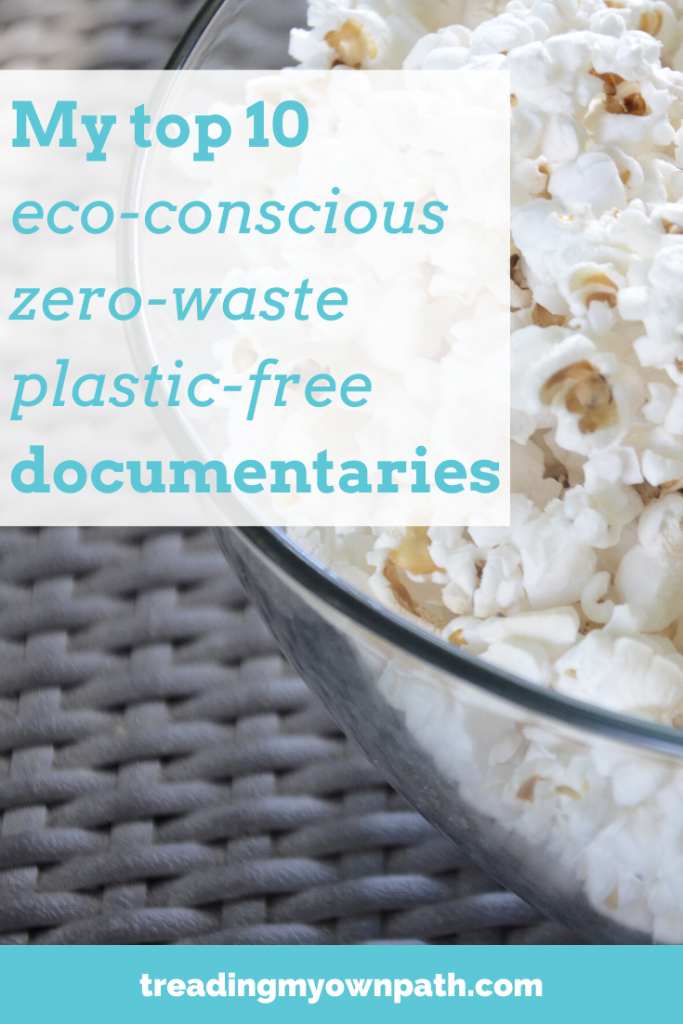
1. Bag It
Bag It! has to feature as number 1 on my list. It’s the documentary I saw in June 2012 after signing up for Plastic Free July that changed my whole perspective on the way I consume, how I view plastic, and in fact, the whole course of my life! I often describe it as “my lightbulb moment”, because, despite the cliche, it really was!
Bag It! is a documentary about the issues of plastic, but offers a raft of solutions, and steps that we as individuals can take to make change. It’s easy to follow, entertaining and funny, but with plenty to think about. It was released in 2011, but remains as relevant as ever. A must watch!
2. True Cost
True Cost is a documentary released in 2015 that looks behind the modern fashion industry. This is far more than a documentary about sweat shops. It explores the issues of materialism and overconsumption; the power of the big retailers and advertising; the health impacts suffered by workers and the environmental devastation that happens worldwide. It gives a face to some of the workers and workers, and provides stories of those trying to change the system. However much you think you know about fast fashion, I guarantee that you will learn something new.
3. Cowspiracy: The Sustainability Secret
This documentary is often touted by vegans as a “must-watch”, which tends to put non-vegans off. Please, do not be put off from watching this great documentary on the basis of what you eat for dinner! Cowspiracy is not a lecture, nor is it trying to make the world vegan. And there is no gory stuff. What it talks about is the impact that industrial agriculture has on the world – and how, when there was 1 billion people on the planet, this wasn’t an issue, now there’s 7 billion, it is becoming one. It also talks a lot about politics and power, which was what I found really interesting. Modern agriculture is big business, and has a lot of influence over governments, corporations…and even charities and environmental organisations. It is thought-provoking and well-made.
4. Tapped
Tapped is a documentary about bottled water. It’s my second-favourite plastic documentary after Bag It! It’s not just about the ridiculous waste that comes with drinking bottled water, and the environmental damage caused by producing so much single use plastic, but also the issues of power, greed and social justice (or lack of). What I found particularly alarming was the complete lack of regulation surrounding bottled water testing – yet it is cleverly marketed as “safer” than tap water. Bottled water isn’t just a plastic issue. It’s a people issue too – and there are some moving stories told by people whose lives have been negatively impacted by the industrialization of bottled water.
5. Just Eat It / Dive
There are two popular documentaries about food waste: the newest is Just Eat It: A Food Waste Story, released in 2014. Made by the same people who made the Clean Bin Project in 2010 (which you will find below at number 6), Just Eat It follows their attempts to live only on food that would otherwise be thrown away. It questions why we throw so much food away, and what the environmental, social and other impacts are on the failures of our food system. Jen and Grant have a lighthearted and fun approach, but beneath the humour there is something far less palatable.
Dive! is another documentary about food waste and dumpster diving. It’s older, and not as slick, but still just as informative. You can watch the Dive! trailer here.
6. The Clean Bin Project
Made by Jen and Grant from Just Eat It fame in 2010, the Clean Bin Project follows their attempt to live zero waste for a year, producing no landfill. They compete with each other to produce the smallest amount of waste, and the documentary is funny and entertaining whilst still exploring the bigger issues, particularly the issues with plastic and packaging. If you want to introduce others to the idea of plastic-free and zero waste lifestyles without overloading them with information or terrorizing them into inaction, then this movie (along with Bag It!) is a really great place to start.
7. Trashed
I prefer the documentaries I watch to end with at least a glimmer of home, and with Trashed, this is borderline. I left the screening feeling motivated to do more – but only just. It is hard-hitting. If you are someone who is easily overwhelmed, I don’t recommend this – and it definitely isn’t a movie to show friends who you are trying to encourage to make small changes! However, if you are somebody who really wants to understand the issues, and wants to see (very clearly!) the impact that our consumption is having on the planet, this documentary is a very graphic example of this.
8. Minimalism: a Documentary about the Important Things
Released this year, Minimalism: a Documentary about the Important Things is a project by the Minimalists Joshua Fields Milburn and Ryan Nicodemus that explores how minimalism has changed the lives of others for the better. It focuses heavily on consumption (or over-consumption), and how moving away from that has improved the lives of the people interviewed. It touches on other aspects of sustainability, including fast fashion and waste. It’s a thoughtful movie, and whilst I didn’t learn anything new, I’d still recommend it. It felt like a taster, and if you are somebody new to these ideas you will get a lot out of it. It’s positive and upbeat, with lots of inspiring stories about people living both conventional and unconventional lives with less stuff.
9. The Lightbulb Conspiracy
This documentary isn’t the most entertaining, beautifully shot or carefully crafted, but it talks about an issue that we don’t often hear about: planned obsolescence. It’s the way companies force us to replace products quicker than we’d like, and it is sure to get you thinking! Planned obsolescence is the deliberate design of a product to ensure that it breaks, falls apart and needs replacing, to encourage us to consume. The Lightbulb Conspiracy tells the story of the Light Bulb Cartel, a true story of companies coming together in the 1920s to deliberately make their products fail, in order to sell more. It also shows how other companies, including Apple and Hewlett Packard, continue to use planned obsolescence today.
10. Tiny / Small is Beautiful
Tiny and Small is Beautiful are both documentaries about tiny houses, and the people who chose to build them. Tiny follows the story of a guy who decides to build his own tiny house, whereas Small is Beautiful follows four couples, all building their own tiny homes. Of the two, Tiny is my favourite, as it not only follows the guy making the film, but also interviews others who have made tiny houses their home. Whilst the filmmaker is building the tiny house primarily to make a documentary and begin a career in film-making, his experiences are still interesting. What really makes the documentary is the other stories – the people who have chosen to live in these homes, what led them to make these choices and how they feel their lives have changed as a result.
If you are interested in tiny houses, Small is Beautiful is also worth viewing. You can watch the Small is Beautiful trailer here.
11. No Impact Man
Colin Beavan, who made No Impact Man in 2009, in which he decides to live a no impact life, reducing his waste, transport use, energy consumption (at one point he gets rid of his fridge!) and food miles. He brings his (sometimes reluctant) family on the journey with him. He recieves a fair amount of criticism with both the movie and his decision to make these lifestyle choices in the first place: some question his motivation (he chose to live the life to write a book about his experiences), and others wonder about his choice to film and share some private family moments with his audience. Whilst he does not always come across as likeable, this documentary is all the better for Colin Beavan’s complete warts-an-all approach to telling his story. Incidentally, his passion and commitment to the cause has been proven over time: in 2016, he is still talking about these issues and is interviewed in Minimalism: a Documentary about the Important Things.
12. Rise of the Eco Warriors
I’ve included this documentary because, despite the name (cheesy as!) and the first 20 minutes or so – where a bunch of mostly white teenagers and young people who have crowdsourced and fundraised for their trip, arrive in Borneo with a plan to “save the world” in 100 days – Rise of the Eco Warriors does has something to offer. After the first 20 minutes, the reality of the situation hits the “eco warriors” and what unfolds is a story about people trying to work together, the enormous devastation that palm oil plantations cause and the complex issues at the heart of it all. If you’d like to know more about palm oil and deforestation, this is definitely worth watching.
Now I’d like to hear from you! What are your favourite eco or environmental documentaries? Are there any that you’d add to this list? Any that you recommend I watch? Were there any that were life-changing (or “lightbulb moments”) for you? Have you seen any of the movies I’ve listed, and what did you think of them? Which were your favourites, and which did you not enjoy at all? Anything else that you’d like to add? Tell me your thoughts in the comments below!
[leadpages_leadbox leadbox_id=1429a0746639c5] [/leadpages_leadbox]

